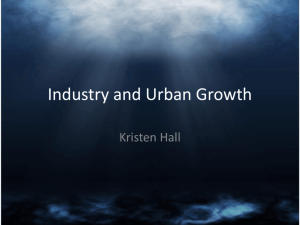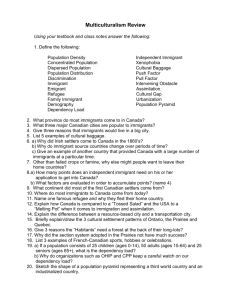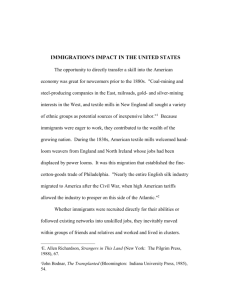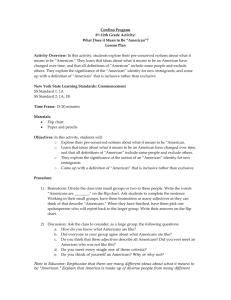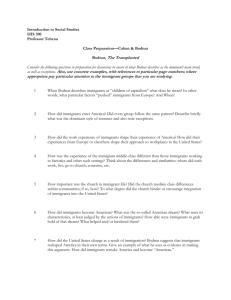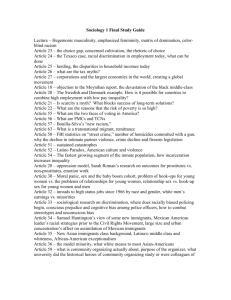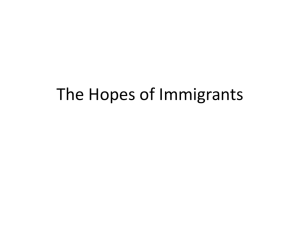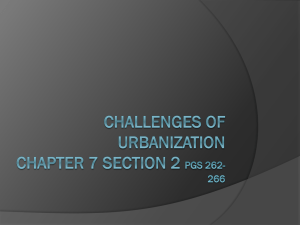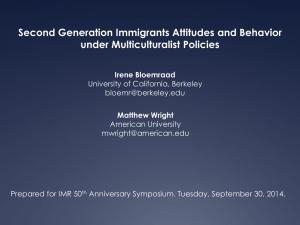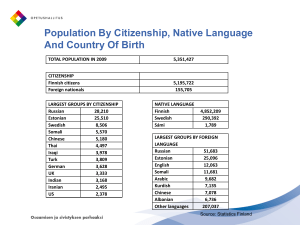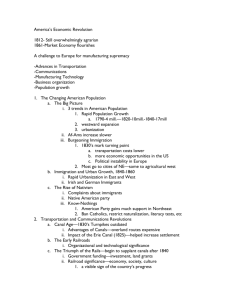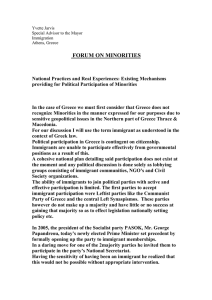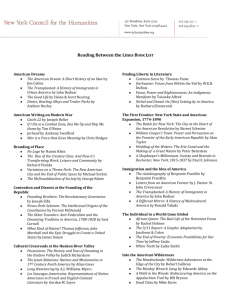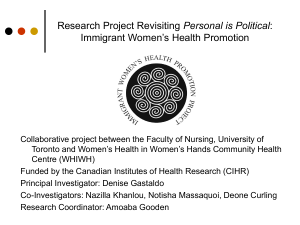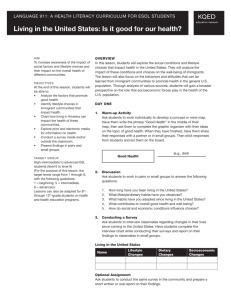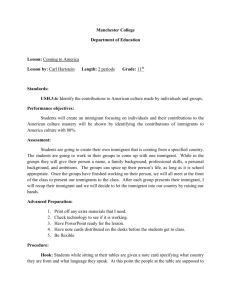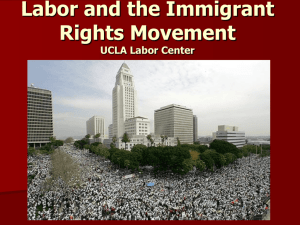Immigration Portrayed As an Experience of Transplantation
advertisement
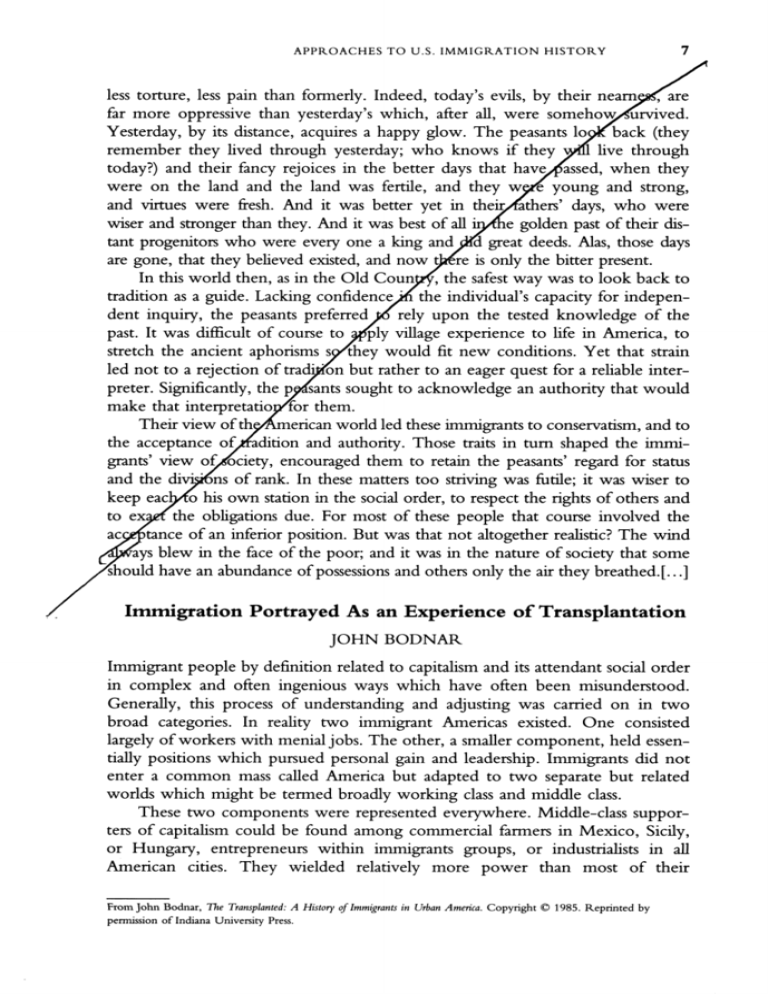
A P P R O A C H E S T O U . S . I M M I G R AT I O N H I S T O R Y 7 less torture, less pain than formerly. Indeed, today's evils, by their nearneaS; are far more oppressive than yesterday's which, after all, were somehow/survived. Yesterday, by its distance, acquires a happy glow. The peasants lookback (they remember they lived through yesterday; who knows if they wffl live through today?) and their fancy rejoices in the better days that have>^assed, when they were on the land and the land was fertile, and they were young and strong, and virtues were fresh. And it was better yet in their/fathers' days, who were wiser and stronger than they. And it was best of all in/tne golden past of their dis tant progenitors who were every one a king and din great deeds. Alas, those days are gone, that they believed existed, and now datere is only the bitter present. In this world then, as in the Old Country, the safest way was to look back to tradition as a guide. Lacking confidence in the individual's capacity for indepen dent inquiry, the peasants preferred to rely upon the tested knowledge of the past. It was difficult of course to affply village experience to life in America, to stretch the ancient aphorisms sc/they would fit new conditions. Yet that strain led not to a rejection of tradi^on but rather to an eager quest for a reliable inter preter. Significantly, the plants sought to acknowledge an authority that would make that interpretatioc/ibr them. Their view of the/American world led these immigrants to conservatism, and to the acceptance of^radition and authority. Those traits in turn shaped the immi grants' view of^ociety, encouraged them to retain the peasants' regard for status and the divisions of rank. In these matters too striving was futile; it was wiser to keep each/to his own station in the social order, to respect the rights of others and to exajex the obligations due. For most of these people that course involved the acceptance of an inferior position. But was that not altogether realistic? The wind ,/a^ays blew in the face of the poor; and it was in the nature of society that some Should have an abundance of possessions and others only the air they breathed. [...] Immigration Portrayed As an Experience of Transplantation JOHN BODNAR Immigrant people by definition related to capitalism and its attendant social order in complex and often ingenious ways which have often been misunderstood. Generally, this process of understanding and adjusting was carried on in two broad categories. In reality two immigrant Americas existed. One consisted largely of workers with menial jobs. The other, a smaller component, held essen tially positions which pursued personal gain and leadership. Immigrants did not enter a common mass called America but adapted to two separate but related worlds which might be termed broadly working class and middle class. These two components were represented everywhere. Middle-class suppor ters of capitalism could be found among commercial farmers in Mexico, Sicily, or Hungary, entrepreneurs within immigrants groups, or industrialists in all American cities. They wielded relatively more power than most of their From John Bodnar, The Transplanted: A History of Immigrants in Urban America. Copyright © 1985. Reprinted by permission of Indiana University Press.

